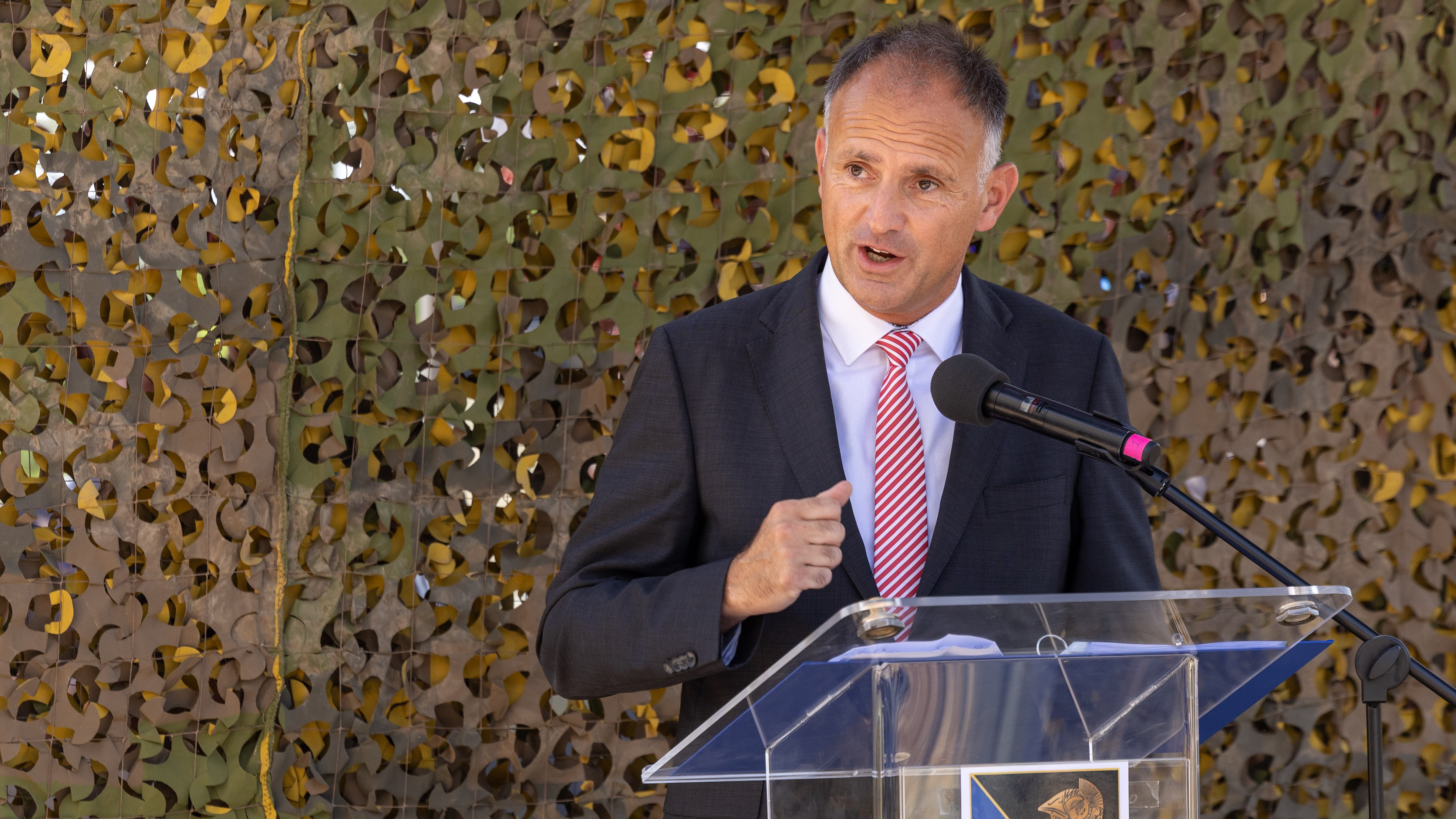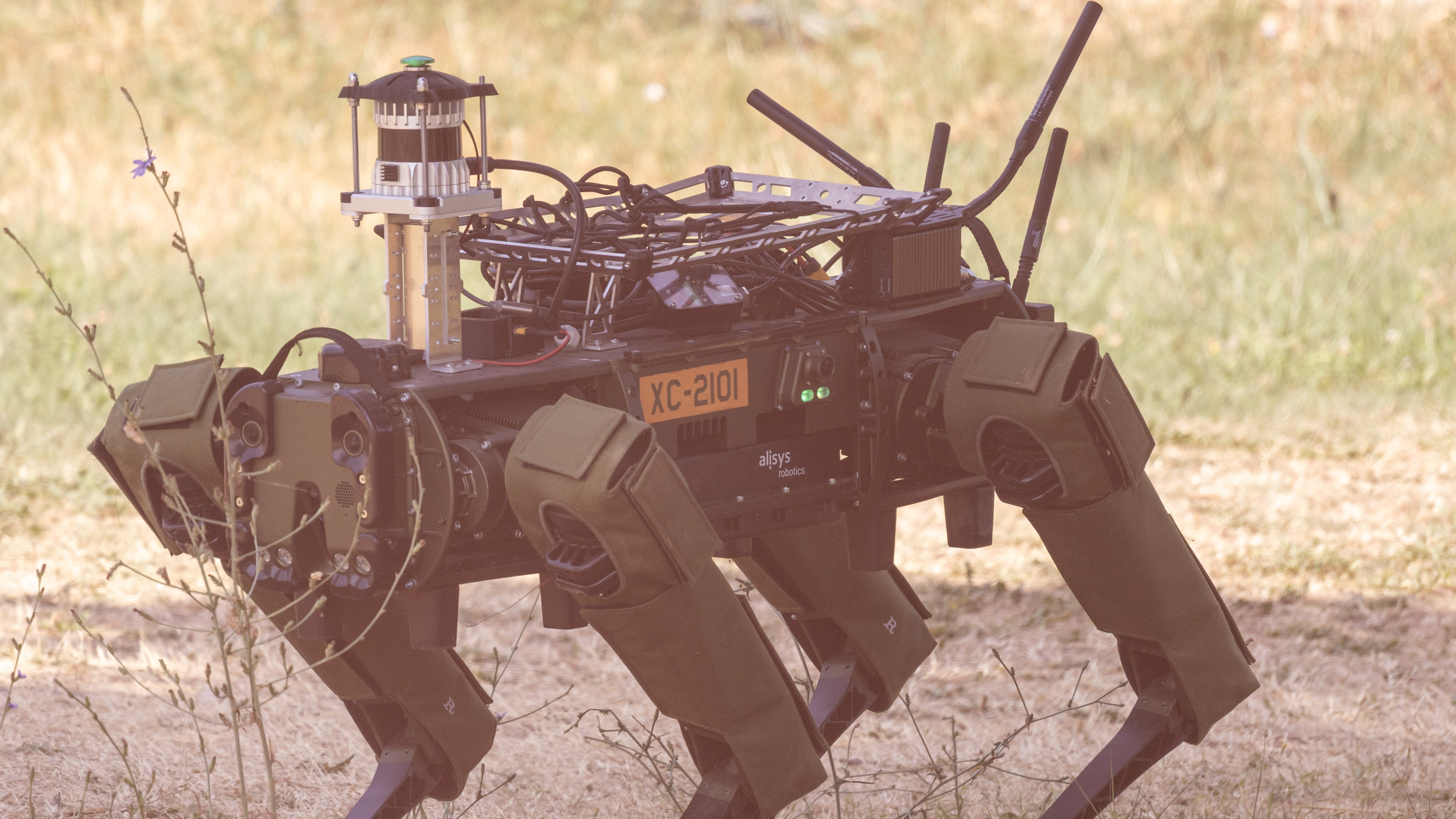On 3 July 2025, six European defence companies gathered near Rome to demonstrate unmanned aerial and ground systems as part of the European Defence Agency’s (EDA) first-ever European Defence Innovation Operational Experimentation (OPEX) campaign. The live demonstration took place under the umbrella of the Hub for EU Defence Innovation (HEDI), at the Italian Army’s Multifunctional Experimentation Centre (CEPOLISPE) in Montelibretti, Italy.
Crucially, this marks the first operational experimentation coordinated at EU level. While similar initiatives have taken place nationally, OPEX introduces a new model of cross-border collaboration among Member States.
"Security, warfare, and technology are changing at an accelerating pace. The war in Ukraine reshaped our understanding of defence innovation, compressing years of development into weeks through rapid prototyping, adaptability, and tight collaboration among armed forces, engineers, and civilians. So, defence innovation is no longer optional, nor a long-term ambition,” said André Denk, EDA’s Chief Executive, during the Distinguished Visitors’ Day. “Accelerating innovation from the lab to the field is our ticket to operational relevance.”

The OPEX campaign embodies HEDI’s ambition to bridge the gap between promising innovation and real-world military capability. By testing unmanned aerial and ground systems in realistic operational conditions, OPEX offers a way for Member States, industry and end-users to jointly test, evaluate and refine technologies. That helps to overcome the “valley of death” where innovations often fail to reach operational use.
Unlike traditional demonstrations, OPEX reflects a shift toward experimentation as a strategic tool. It generates critical insights into operational concepts, training requirements and interoperability challenges — supporting long-term defence planning. From autonomous systems and drones to electronic interference platforms, the campaign reflects EDA’s commitment to accelerating the uptake of emerging capabilities.
Weeks of field testing
The campaign unfolded in several phases of increasing complexity, from the evaluation of individual systems to fully integrated, cross-domain operations using unmanned aerial systems (UAVs) and unmanned ground systems (UGVs). The six companies — Portugal’s BEYOND VISION, ALTUS LSA of Greece, Austria’s SCHIEBEL, ALYSIS of Spain, PIAP of Poland and Germany’s ARX ROBOTICS — carried out simulations of coordinated tactical missions, focused on autonomous logistics under conditions closely mirroring real-life scenarios.

The final phase of the campaign tested these systems further in demanding, multi-domain environments, providing insight into how advanced technologies can be integrated into future military operations and force structures.
The Distinguished Visitors’ Day event brought together high-level representatives, including EDA's Denk, Director of CEPOLISPE Brigadier General Pierpaolo Dotoli, Italian National Armaments Director (NAD) Admiral Giacinto Ottaviani, and Italy's Deputy NAD Luisa Riccardi. EDA’s Director for Research, Technology and Innovation, Nathalie Guichard outlined HEDI’s mission to accelerate defence innovation across the EU.
OPEX campaigns will become a multi-annual effort under HEDI. Future editions, hosted by various Member States, will expand in scope and complexity, covering a wider range of emerging technologies. They will feed directly into EU defence planning, helping ensure that innovation is translated more rapidly and effectively into operational capability.
The OPEX support team is a consortium led by French company EXTENSEE. It helped in the design and execution of the OPEX campaign in collaboration with EDA and the Italian authorities.
EDA awarded contracts across six specialised categories, following a competitive procurement process launched in July 2024:
- Low-Cost Attritable UAS – BEYOND VISION (Portugal)
- Vertical Take-Off and Launch (VTOL) UAS – ALTUS LSA (Greece)
- Heavy Lift VTOL UAS – SCHIEBEL (Austria)
- Low-Cost Attritable UGS – ALYSIS (Spain)
- Medium Wheeled Logistical UGS – PIAP (Poland)
- Medium Tracked Logistical UGS – ARX ROBOTICS (Germany)
EDA’s broader role
Founded in 2004, the Agency helps foster defence cooperation across Europe. It serves as the central hub for EU countries aiming to develop their defence capabilities together. EDA’s activities span from harmonising requirements and developing operational capabilities to research, technology, innovation, training, and supporting Common Security and Defence Policy operations. The agency also works closely with the European defence industry to strengthen Europe’s technological and industrial base.